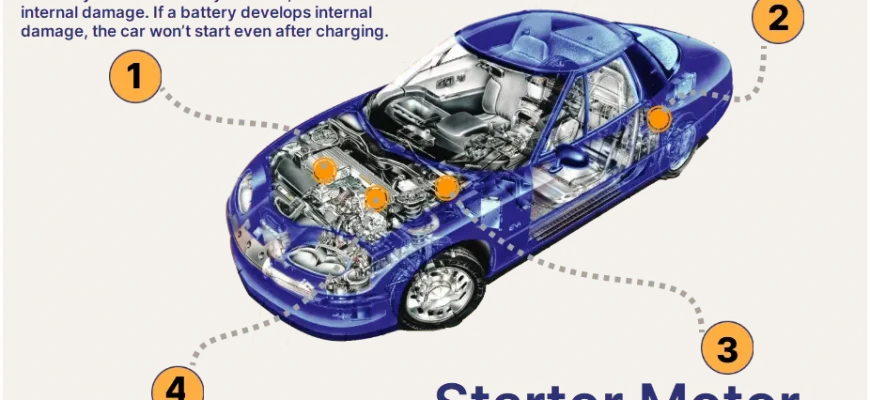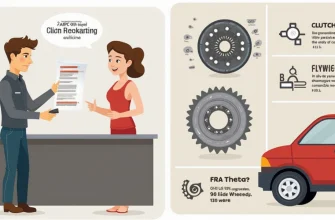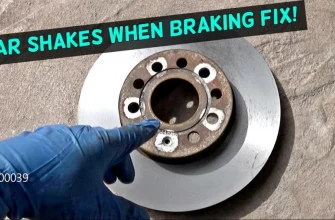Experiencing an engine stall moments after starting your vehicle can be a frustrating and concerning issue. Whether you’re a seasoned car enthusiast or a casual driver, understanding the potential causes of this problem can save you time, money, and a lot of hassle. In this article, we will delve into the common reasons why engines stall shortly after starting and provide you with troubleshooting tips to help identify and resolve the issue.
Understanding Engine Stalls
An engine stall occurs when the engine unexpectedly shuts off while running, often leaving the driver in a precarious situation. This can happen for several reasons, and it’s crucial to diagnose the underlying problem effectively. A stall shortly after starting typically indicates an issue with the fuel or ignition system, but there are other factors to consider as well.
Common Causes of Engine Stalls After Starting
- Fuel Delivery Issues
- Clogged fuel filter
- Failing fuel pump
- Dirty fuel injectors
- Ignition System Problems
- Worn spark plugs
- Faulty ignition coils
- Damaged spark plug wires
- Air Intake Issues
- Clogged air filter
- Leaky intake manifold
- Faulty mass air flow (MAF) sensor
- Electrical System Malfunctions
- Weak battery
- Faulty alternator
- Corroded battery terminals
- Sensor Failures
- Throttle position sensor (TPS)
- Engine coolant temperature sensor (ECT)
- Oxygen sensors
The most common culprit behind engine stalls is a problem with fuel delivery. If your car is not receiving enough fuel, it may struggle to maintain idle after starting. Potential issues include:
The ignition system is responsible for igniting the fuel-air mixture in your engine; If there’s a malfunction, it can lead to stalling. Common ignition issues include:
A proper air-fuel mixture is necessary for your engine to run smoothly. If the air intake system is compromised, it can lead to stalling. Key issues can be:
Electrical issues can also cause your engine to stall. Problems with the battery, alternator, or wiring can disrupt the necessary power supply. Common signs include:
Modern vehicles rely on a network of sensors to monitor and adjust engine performance. A malfunctioning sensor can throw off the engine’s control unit (ECU) and lead to stalling. Key sensors to check include:
Troubleshooting Steps
If your engine is stalling shortly after starting, follow these troubleshooting steps to identify the issue:
- Check the Fuel System: Start by inspecting your fuel filter and pump. Listen for the fuel pump’s sound when you turn the ignition on. If you don’t hear it, consider replacing the fuel pump.
- Inspect the Ignition Components: Examine the spark plugs and ignition coils for wear and damage. Replace any faulty components.
- Evaluate the Air Intake: Check the air filter for clogs and inspect the intake manifold for leaks. Clean or replace as necessary.
- Assess the Electrical System: Test the battery and alternator. Ensure that all connections are clean and secure.
- Scan for Diagnostic Trouble Codes: Use an OBD-II scanner to check for error codes that can provide insight into sensor failures or other issues.
When to Seek Professional Help
If you’re unable to identify or resolve the issue through these troubleshooting steps, it may be time to consult a professional mechanic. They have the tools and expertise to diagnose more complex problems and ensure your vehicle is safe and reliable.
Engine stalling shortly after starting can indicate various underlying issues, from fuel delivery problems to electrical malfunctions. By understanding the common causes and following a systematic troubleshooting approach, you can effectively pinpoint the problem and take the necessary steps to rectify it. Remember, keeping your vehicle well-maintained and addressing issues promptly will help you avoid more severe problems down the line.
Stay informed, stay safe, and drive with confidence!










I had no idea that fuel delivery issues could cause engine stalls. This article really opened my eyes to what might be happening with my car.
“This article is a lifesaver! The troubleshooting tips are practical and straightforward. Thank you for sharing!”
As a new driver, this article was super helpful! The way you explained ignition system problems was clear and easy to understand.
I found this article very well-written and easy to follow. Engine stalls can be scary, but now I feel more prepared to handle them!
Great breakdown of potential causes! I appreciate the troubleshooting tips provided; they will definitely come in handy.
Fantastic insights on air intake issues! I never realized how important the air-fuel mixture is for engine performance.
This article is incredibly informative! I learned so much about engine stalls and how to troubleshoot them. Thank you for the detailed explanations!